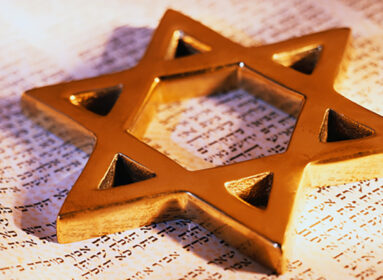
By Rabbi Shmuel Reichman
T
his week’s parsha, Vayakhel, opens with the command to keep Shabbos – the Sabbath – a focal point of Jewish life. It is striking to consider how fundamental and central Shabbos is in Jewish thought and practice.
When we consider whether or not someone is an observant Jew, we usually ask whether he or she is “Shomer Shabbos,” Sabbath observant. Why is this the defining feature of religious observance? What makes Shabbos a root mitzvah and why do we see it as the measuring stick for all of Torah observance?
Theme of the Day
Usually, when we have a specific time of kedushah, a holy point in time, there is a unique positive act that we associate with it. On Rosh Hashanah we blow shofar, on Succot we sit in the succah and shake the lulav, on Chanukah we light the menorah, on Purim we read the megillah, on Pesach we have the seder, and on Shavuot we learn Torah.
On Shabbos though, we tend to think less about what we are meant to be doing, and more about what we are not allowed to do. The prohibition against creative work on Shabbos, dominates our focus. We can easily fall into the trap of associating Shabbos with only restrictions. These prohibitions can take over the day, leaving us feeling restricted, limited, or even trapped.
A Taste of Olam Habah
In an enigmatically cryptic manner, the Gemara (Brachos 57a) compares Shabbos to Olam Habah (the world to come). The exact terminology is “mei’ein olam habah”, Shabbos is a taste of the world to come. To understand the deeper meaning of Shabbos we must first understand the nature of Olam Hazeh (this world) and Olam Habah (the world to come).
Olam Hazeh is the place of process. In this world, you choose who you will become, you have the ability to build, mold, and create yourself. Every single day presents you a new opportunity to become greater than you were the day before. This world is therefore the place of movement and becoming, where we progress along our personal path of change and growth.
Olam Habah, in contrast, is the place of being, where you experience everything you have built in this life. No longer can we move or become, no longer can we build. Rather, we experience a static world, lacking both movement and process, where we enjoy everything we created during our lives in this world.
The joy of this world is the ability to grow, to learn, to become. The pain is that it is limited; we are only in this world for a short amount of time before we leave. The joy of the world to come is the ecstatic pleasure of experiencing everything we have built during our lifetime. The pain is that it’s only that, nothing more. All the potential we failed to actualize will remain eternally so: potential.
It is essential to understand that the reward in the world to come is you, the consciousness and self that you created during your lifetime. As the Ramchal and the Nefesh Ha’Chaim explain, when you die, your mind and consciousness are peeled away from your physical body and you exist eternally as the essential being that you have created.
Weekdays and Shabbos
The weekdays are an experience of this world, a time to physically create, build, and grow. Shabbos is more than just a day of rest, it’s a taste of Olam Habah. On Shabbos, we cease creative physical activity and experience what it means to simply exist. This is the spiritual parallel to our transition from this world to the next. In this world we have the chance to grow and build, in the next we cease our creative activity and experience everything we have built. Shabbos is the ultimate reminder that our lives have an end point, and that the result is only as great as every bit of effort that we have invested into building it.
This is why, despite the fact that we may pause our physical growth on Shabbos, we don’t stop our spiritual growth; in fact, we place special emphasis on it. The experience of Olam Habah that we taste on Shabbos should compel us to take full advantage of this world, to further build, develop, and grow. Shabbos is the reminder that one day we will no longer have the opportunity to take advantage of this world; our response should be to redouble our conviction to do so. We can then enter the next week rejuvenated and inspired to become even more.
Shabbos is a glimpse of another dimension, the faintest taste of the world to come. This is the ultimate oneg Shabbos, the pleasure of experiencing a taste of Olam Habah.
The Goal of Shabbos
It is all too easy to lose focus of the bigger picture, of what is truly important in life. Many people are stuck in an endless cycle of work, eat, sleep, repeat. However, this is not what we were created for. Each and every one of us has the potential for greatness, and our job in this world is to find our unique greatness and bring it to life. Shabbos is the time to ask ourselves: “Where am I going in life? What are my goals? What am I trying to accomplish?”.
Shabbos is an opportunity to solidify past growth and propel ourselves towards future greatness. The first step to achieving this is to look back at everything you have become until now, and to enjoy the person you have created. The second step is to take a reflective step outside of yourself and view yourself objectively. We need to have the courage to ask ourselves the important questions: Who am I? What drives me? What makes me unique? What are my talents? What are my passions? What can I contribute to the Jewish people and the world as a whole? Most importantly, how am I doing in life? Am I achieving my goals? Is there anything which needs more work?
Our lives are built through the decisions we make, and Shabbos provides us with the ideal opportunity to make the decision to become more. Every decision you’ve ever made in your entire life has led you to this very moment, and any decision you make going forward can forever alter your life for the better. Shabbos is when we regain perspective on who we are, where we are headed, and what decisions we must make to become our best and truest selves.
May we be inspired to fully experience Shabbos, a taste of Olam Habah, and use this taste of destination to unlock our true greatness.
Rabbi Shmuel Reichman is an author, educator, and coach who has lectured internationally on topics of Jewish thought and Jewish medical ethics. Contact him at ShmuelReichman.com.








 Southern New England Jewish Ledger
Southern New England Jewish Ledger












